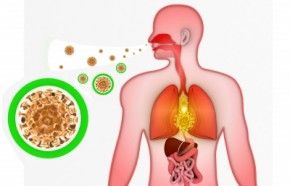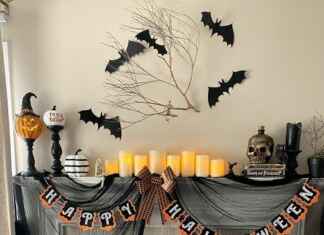
Pneumonia is one of the most common infections of the lungs affecting mostly the very young or old, who typically have a weak immune system, making them more vulnerable to infections. In fact, Pneumonia is the leading cause of death in infants and children worldwide, claiming a whopping 1.1 million lives under the age of five years every year, according to World Health Organization. A large number of the elderly, especially those who have a chronic lung disease or those who have immune deficiency diseases like AIDS, Lupus or Arthritis, also fall prey to respiratory infection.
While the threat of pneumonia is persistent in all vulnerable people throughout the year, in winters the risk goes up because of several reasons. This is why, we need to take extra precautions in winter against pneumonia.
Pneumonia leads to inflammation of one or both lungs due to infection, making breathing difficult. Our lungs are made up of small sacs which fill with air when one breathes. Pneumonia infection causes these air sacs to be filled with pus and fluid, making breathing painful and restricting the intake of oxygen inside the body.
“Many types of organisms can cause pneumonia, but in elders, most are viruses or bacteria. The body’s immune system is best placed to fight the onslaught of these micro-organisms. In young children in whom the immune system is not completely developed, the threat of pneumonia is high. Similar is the case with the elderly. As we age, our immune system gradually loses its strength”, says Dr. Ashish Sharma, Internal Medicine, Columbia Asia Hospital – Ghaziabad.
In winters, the incidence of pneumonia rises due to several reasons:
- · Other infections like influenza and other viral infections are more common in winters. A viral infection can weaken the immune system, increasing the risk of contracting pneumonia.
- · Fog often combines with traffic smoke in winters to give rise to a layer of smog. This makes lung infections and respiratory ailments more pronounced, further making a person susceptible to pneumonia.
- · The woolens we wear harbor molds and this can be a source of allergy and aggravation of conditions leading to pneumonia
- · In cold weather, people tend to keep indoors with doors, windows and all sources of ventilation shut coupled with the use of heating facilities. Lack of air circulation can lead to increased susceptibility to respiratory disease in the elderly.
How to minimize risks:
Simple precautions and basic hygiene can markedly reduce the risk of respiratory infections including pneumonia.
- · Boost Immunity:Strengthening the body’s immune system is one of the most important thing to do. Eat vitamin and anti-oxidant rich food that equips the body against diseases. Make fruits and vegetables a part of daily life to boost your immune system. Exercise regularly and adopt practices like yoga or meditation. If necessary take vitamin c supplements for strengthening the immunity and preventing flu like infections.
- · Get yourself vaccinated: Vaccination is helpful in preventing several strains of pneumococcus bacteria. At least 20 most dangerous strains from among the 80 pneumococcus bacteria are covered by immunization. Simultaneously, since influenza in a number of cases leads to pneumonia, it is also advisable to get flu vaccination every winter. Children below 2 years of age, and elderly above 65 are specially advised immunization.
- · Keep it hygienic: Do not show laxity in keeping up yourself, your home and your accessories hygienic and germ free. Make sure you wash your hands every time you enter the house or every time you shake hands with someone. Make sure your blankets, bedding and woolens are clean and regularly aired.
- · Allow Ventilation:Aerate your home, open the windows and let some fresh air, however cool, come in with sun’s rays to keep the air dry and clean and prevent respiratory problems.














